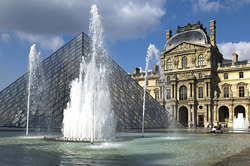The relevance of national museums in Europe today
In the collection and creation of repositories of scientific, historic and aesthetic objects, choices are made that protect as well as narrate ideas of virtue, unicity and place in the wider world. National museums therefore constitute authoritative spaces for the display and negotiation of community and citizenship. As such, a better understanding of their relevance in contemporary society is critical to the shaping of cultural policies in an enlarged European Union. Having conducted fieldwork in 37 European nations, the 'European national museums: Identity politics, the uses of the past and the European citizen' (EUNAMUS) project is the biggest and most comprehensive comparative research project on museums ever undertaken. Researchers focused on understanding how conditions for framing the past can be used in negotiations that recreate citizenship and help maintain creative diversity, whilst also developing a common sense of shared European legacies. National museums employ narrative perspectives in terms of internationalism, the nation, and ideology. They help to set up a long term consensus on the cultural underpinning of political community. They also narrate reconciliation and can contribute to the handling of conflicts. A comparative, visitor study of national museums, the most extensive ever undertaken in Europe, yielded both survey results and a series of case studies for quantitative and qualitative research. This was used to promote an understanding of the actual social relevance of, and possibilities for, potential 'utopic' visions for national museums. EUNAMUS produced knowledge on the variety of strategies used by museum policy to handle contemporary challenges. The wide implications of national museum policies being developed at top political levels are often tied into larger national political agendas and debates. One example is the Greek discussions on the Parthenon marbles, and the national pride and autonomy at stake in these. Another is Hungary’s museum policy questions that relate to the revision of the political past and to a right–left political distinction at government level. Project results and progress are available on the project website(opens in new window) and highlight how museums use knowledge and historical narratives as well as buildings and objects to contribute to negotiations of identities, conflicts and values. EUNAMUS was thus also able to offer recommendations on how national museums can be mobilised at national and European levels for increased social cohesion and international understanding.







